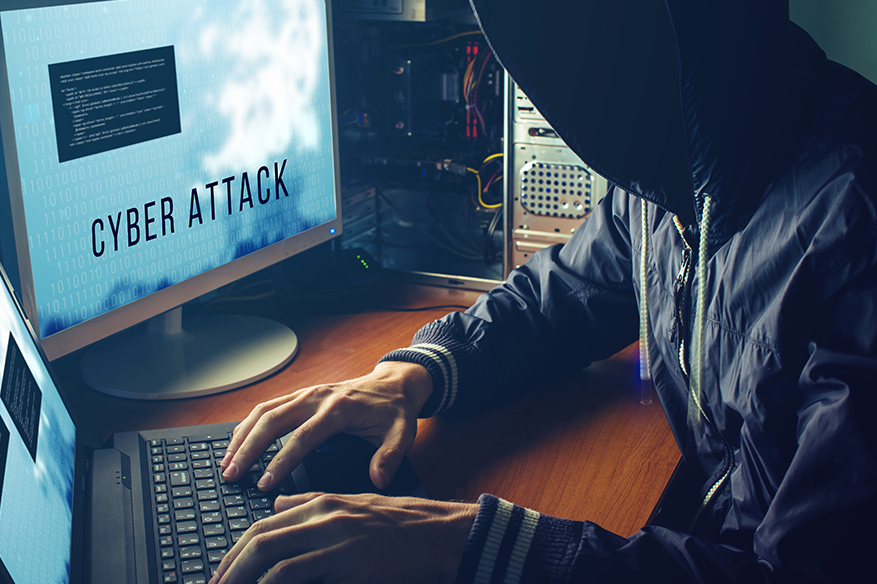How to Protect Yourself from Online Cyber Attacks at Work

Anyone who is on the internet is vulnerable to cyber attacks. Today, we depend on the internet for all kinds of things, including shopping, financial services and transactions, communication, entertainment etc. At work also, the internet plays a key role. Hence, it’s important that we stay secure, whenever we are on the internet. Here’s a brief guide to internet security, focusing on how to protect yourself from online cyber attacks while at work…
Stay wary of phishing emails
Even as I am writing this piece, I get an email supposedly from the income tax department stating that a huge amount has been debited from my account towards taxes that are due. One look and I understand it’s a spam email- a phishing email that could land me in trouble if I click on the link that accompanies it and which is supposed to give me details of the tax deduction.
Scammers keep on sending phishing emails to unsuspecting people, aiming to infect the targets’ systems with malware once they click on the accompanying links or download the attached documents. Such emails would even address you by name or official designation, and might even mention the project you are associated with at office. Taking it to be a genuine mail, you’d open it, click on the link or download the attachment and consequently your system and then the entire network would be infected.
Thus, it’s always best to stay wary of phishing emails. Always ensure that the email you’re opening is from a trusted source. Emails that ask you to fill in details, even if they seem to come from trusted sources, need to be scrutinized well. Call the sender and confirm the genuineness of such emails before filling in details. Never click on links or download attachments that come with suspicious-looking emails.
Be careful about your passwords
Effective password management is crucial to internet security. Make sure that you lock your devices, your various online accounts and all company routers with strong passwords or PINs. Strong passwords should ideally be a mix of alphabets (both upper case and lower case alphabets), numbers and special characters. Make it a point to have a unique password for each account or device and also make it a policy to keep changing passwords regularly. You could also use a password manager and store passwords encrypted. Never show your PIN or password to anyone else at work.
Secure your system, update software and back up data
Always make it a point to secure your system by installing all necessary security software, beginning with the very basic antivirus/antimalware software and the firewall. Never disable your firewall, it plays a key role in protecting you from many external attacks. Updating all software and updating your operating systems regularly is important as regards internet security. Many cyber attacks happen by exploiting unpatched vulnerabilities in the software or OSs.
If in case you are connecting to your office network using a personal device- a smartphone, tablet or laptop- make sure the device is also secured well.
Have a back up of all important data, and make it a policy to update it regularly.
Protect all company data and financial assets
Be very careful when dealing with company data and other financial assets pertaining to your company. You should not disclose any data, including personal data of customers or clients, to anyone. You should be careful while communicating account numbers, passwords etc to others within the organization. Always choose channels that are encrypted and secure. Never share confidential information through unencrypted channels or even through text messages, instant messenger etc. They could be hacked, stolen and misused. Ensure that data pertaining to office-related financial transactions, details about payroll etc too remain secure.
Don’t depend on public Wi-Fi networks
While connecting to your office network using your personal devices, never depend on public Wi-Fi networks. They could be insecure and could be used to hack your device, which could help the hacker eventually access your company network. It’s best to opt for a VPN (Virtual Private Network).
Some other preventive measures
- Refrain from using unknown flash drive/USB devices on your computer.
- Always lock your system while moving away.
- Scan all USB devices or other external devices that you connect to your system/network.
- Ensure proper encryption of confidential data that are stored on flash drives, smartphones, laptops and other portable devices.
- Have proper access control, especially as regards systems that store sensitive personal data of customers.
- Refrain from making financial transactions over public Wi-Fi connections.
Whenever you notice something that could have caused an issue to the overall security of the company and its network, it’s best to inform the IT department as promptly as possible. Remember, containing an issue on time is as important as preventing it from happening. Similarly, if a personal device that you connect to the official network is lost or stolen, inform the IT department at the earliest.
Related Resources:
Businesses Should Be Aware of Growing Cyber Attacks
How A Website Security Scanner Helps Lessen Future Cyber Attacks